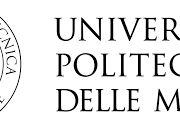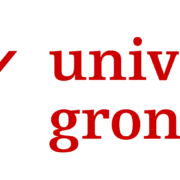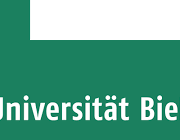MessageNachricht: The Institute of Philosophy invites applications for the position of a Doctoral Researcher (m/f/d) in Philosophy of Economics (Salary Scale 13 TV-L, 65 %) starting October 1, 2023. The position is limited to 4 years.
In the context of the project “MODEL TRANSFER – Model Transfer and its Challenges in Science: The Case of Economics,” funded by the European Research Council (ERC) through a Starting Grant to Catherine Herfeld (Leibniz University Hannover), we seek to appoint a doctoral researcher with special interest in philosophy of economics and/or history of economics (ideally the recent history of macroeconomics). The project studies the phenomenon of model transfer and its challenges in science, focusing in particular on such model transfer processes from and into economics. In this light, one goal of the planned dissertation project will be to historically and systematically study the transfer of agent-based models into macroeconomics.
Find out more about the project here:
https://cordis.europa.eu/project/id/101043071
and here:
https://ercproject-modeltransfer.weebly.com
The position is also attached to the Chair of Philosophy and History of Economics (Prof. Dr. Catherine Herfeld). The position is remunerated according to salary scale “13 TV-L” (Collective Agreement for the Public Service of the Länder).
Responsibilities and duties
The position is dedicated to the research that will be undertaken in the context of the ERC project. The successful candidate will be expected to work in a team, actively participate in all project events, co-organize events on the project topic and present their research at conferences and workshops on a regular basis.
Employment conditions and requirements
To qualify for the position, applicants must hold an academic degree in philosophy and/or economics. The doctoral student (PhD) will be expected to have some training in economics (ideally macroeconomics), philosophy of science, philosophy of economics, and/or history of economics. They should be fluent in English; fluency in German is not required.
The university aims to promote gender equality. For this purpose, the university strives to reduce under-representation in areas where a certain gender is under-represented. Women are under-represented in the salary scale of the advertised position. Therefore, qualified women are encouraged to apply. Moreover, we welcome applications from qualified men. Preference will be given to equally-qualified applicants with disabilities.
Please submit your application with supporting documents (cover letter, CV including a list of publications if applicable, certificates, a writing sample of ca. 20 pages on any topic that reflects your best philosophical writing, and two letters of reference) the latest by June 15, 2023 as a single pdf to
Email: catherine.herfeld@philos.uni-hannover.de
or by postal mail to:
Gottfried Wilhelm Leibniz Universität Hannover
Institute of Philosophy
Prof. Dr. Catherine Herfeld
Lange Laube 6, 30159 Hannover
Germany
For further information about the available position, you may contact Prof. Dr. Catherine Herfeld (email: catherine.herfeld@philos.uni-hannover.de).
Here is the link to the original job ad.
https://www.uni-hannover.de/en/jobs/id/6134?cHash=33c16fa582960a8b708eac6d32f1ccc4

















